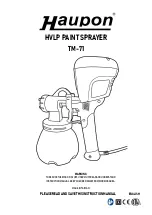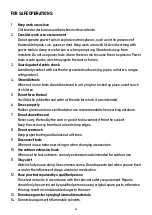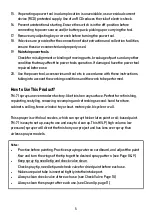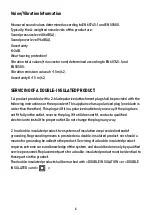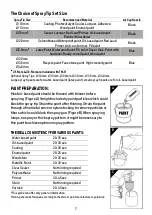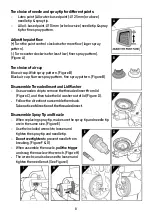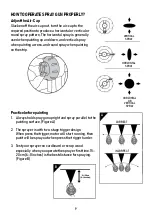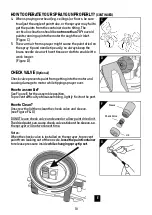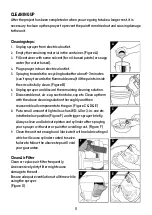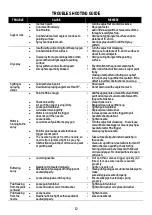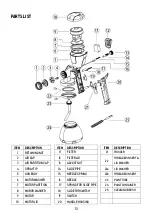
4
FOR SAFE OPERATIONS:
1.
Keep work area clean
Cluttered or dark areas and benches invite accidents.
2.
Consider work area environment
Do not operate power tools in explosive atmospheres, such as in the presence of
flammable liquids, rain, gases or dust. Keep work area well lit. Avoid working with
power tools in damp or wet areas or when perspiring. Store tools away from
moisture. Do not use power tools where there is risk to cause fire or explosion. Power
tools create sparks which may ignite the dust or fumes.
3.
Guard against electric shock
Avoid body contact with earthed or grounded surfaces (e.g. pipes, radiators, ranges,
refrigerators).
4.
Store idle tools
When not in use, tools should be stored in a dry, high or locked up place, out of reach
of children.
5.
Do not force the tool
It will do the job better and safer at the rate for which it was intended.
6.
Dress properly
Rubber gloves and non-skid footwear are recommended when working outdoors.
7.
Do not abuse the cord
Never carry the tool by the cord or yank it to disconnect it from the socket.
Keep the cord away from heat, oil and sharp edges.
8.
Do not overreach
Keep proper footing and balance at all times.
9.
Disconnect tools
When not in use, before servicing or when changing accessories.
10.
Use outdoor extension leads
When use the tool outdoors, use only extension cords intended for outdoor use.
11.
Stay alert
Watch what you are doing. Use common sense. Do not operate tool when you are tired
or under the influence of drugs, alcohol or medication.
12.
Have your tool repaired by a qualified person
This electric tool is in accordance with the relevant safety requirement. Repairs
should only be carried out by qualified persons using original spare parts, otherwise
this may result in considerable danger to the user.
13.
Do not use guns for spraying flammable materials.
14. Do not clean guns with flammable solvents.

